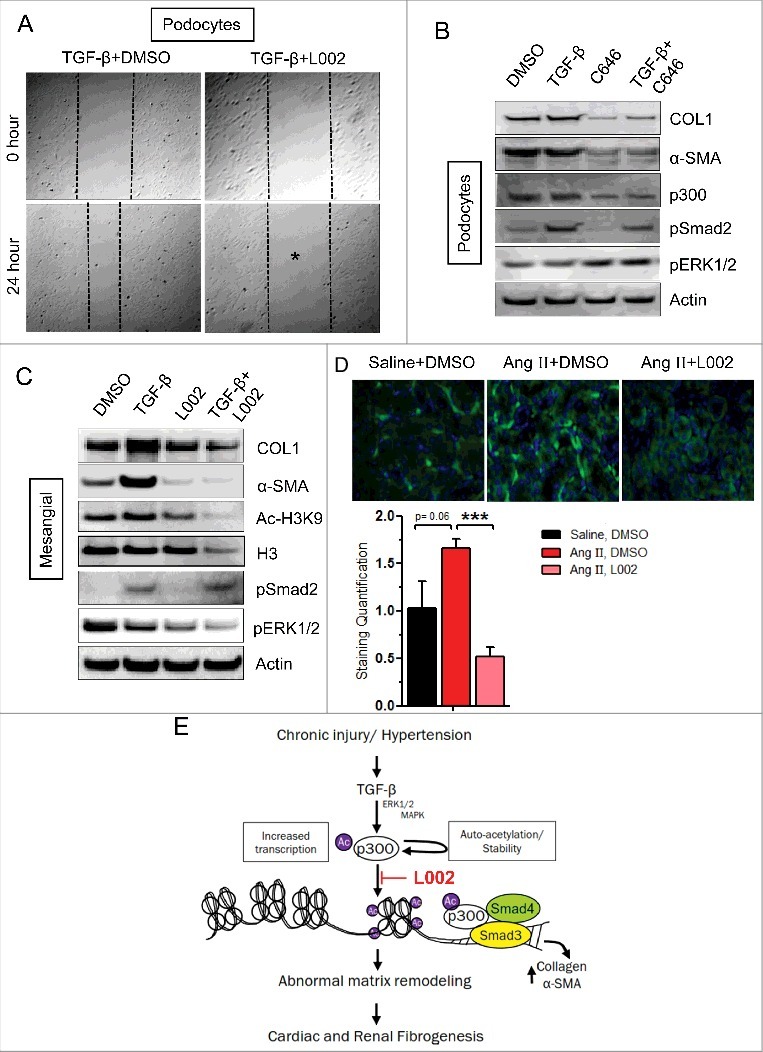Figure 4.

L002 reduces TGF-β-induced pro-fibrogenic responses in renal cells, and mechanistic insights. (A) For migration assay, podocytes were pretreated in triplicate with L002 or DMSO for 1 hour. Then scratch wounds were made in monolayer cultures, followed by TGF-β treatment for 24 h. Photographs were taken at 0 hour and 24 hours after treatment. (B-C) Cultures of human (proliferating) podocytes or mesangial cells were treated in triplicate with L002/ C646 or DMSO in the presence or absence of TGF-β. Total protein was isolated, pooled and processed for Western blotting. Experiments were repeated twice. (D) Effect of L002 on p300 levels. Renal sections from saline, Ang II and Ang II, L002 groups were immuno-stained with anti-p300 antibody and quantified. Saline (n = 3, 12–15 fields); Ang II (n = 5, 20–25 fields); Ang II, L002 (n = 5, 20–25 fields). Data represented as mean ± SEM. ***p < 0.001. (E) Model showing effect of L002 on fibrogenesis: Profibrogenic signals induce the levels of FATp300 due to increased transcription and auto-acetylation. FATp300 acetylates histones and transcription factors and augments matrix protein synthesis causing organ fibrogenesis. Small molecule L002 reduces FATp300 activity and blunts organ fibrogenesis.
